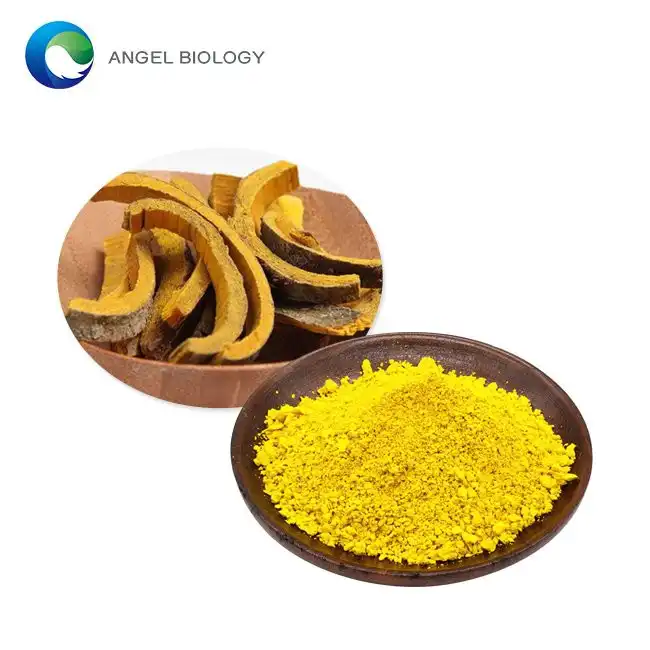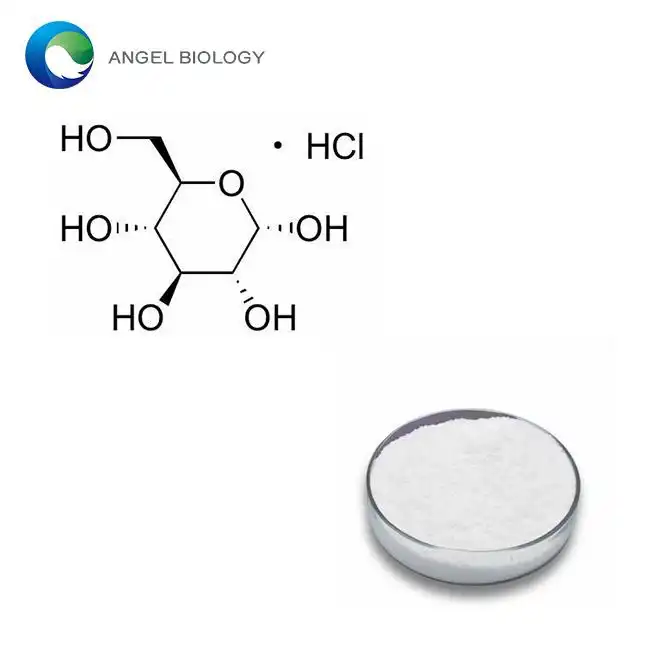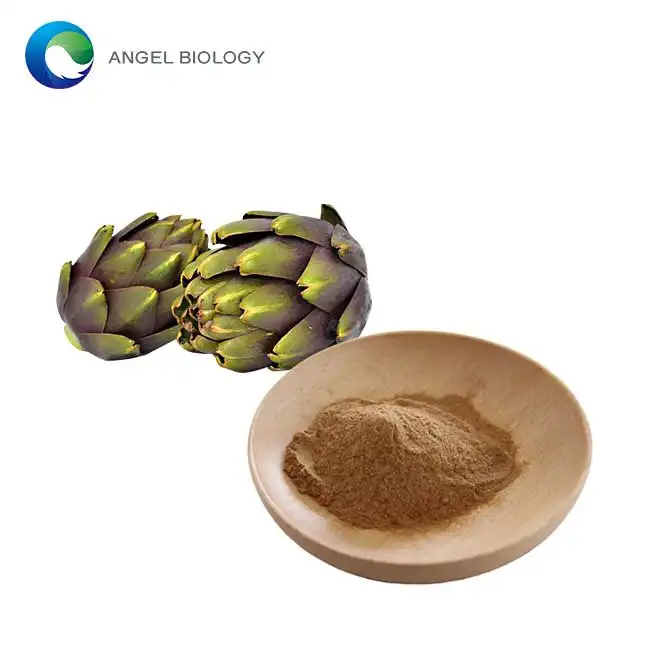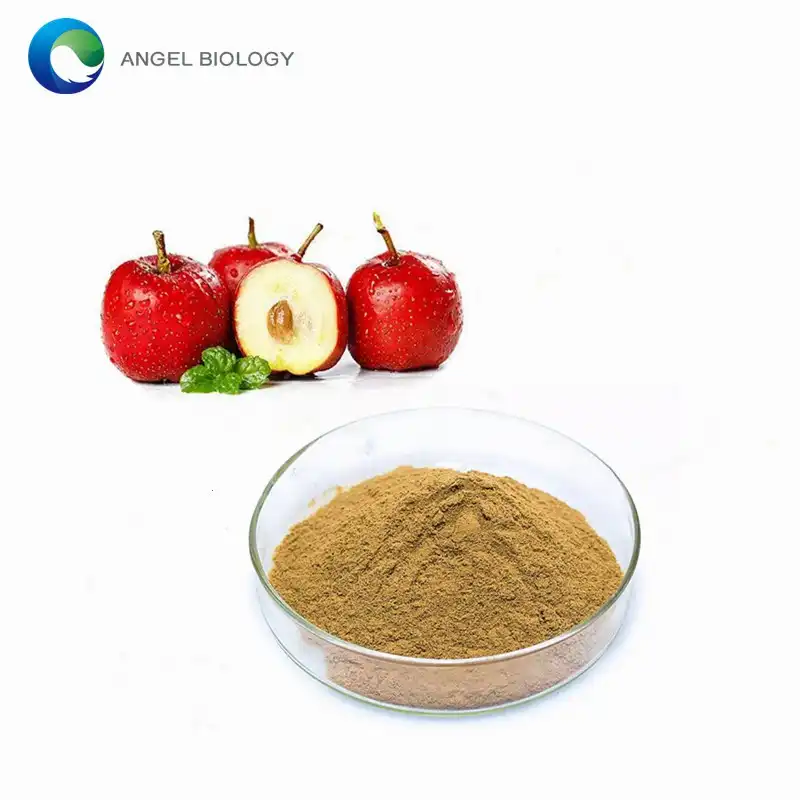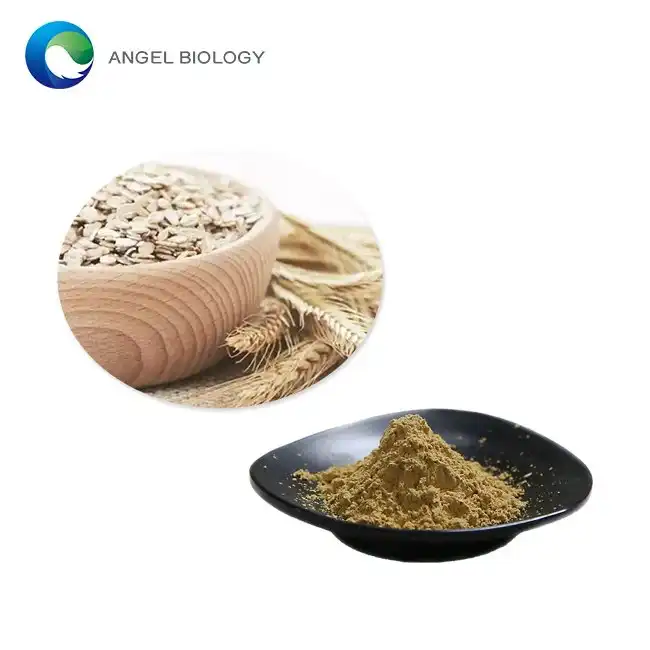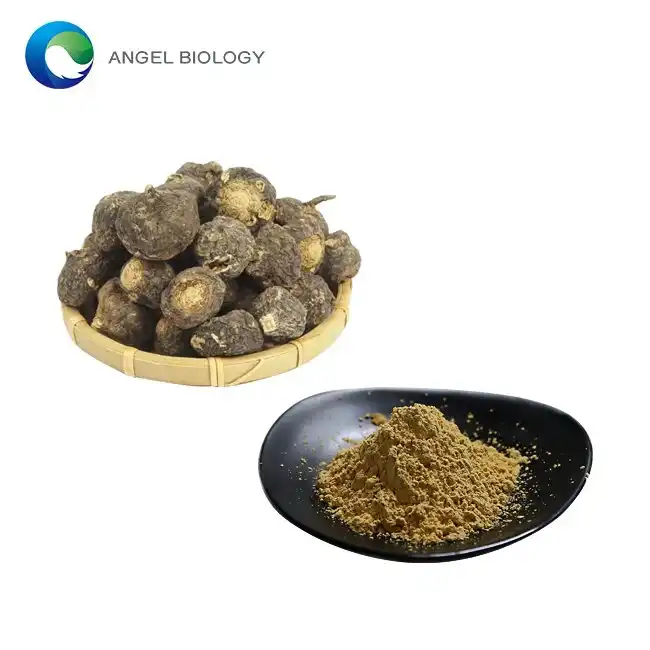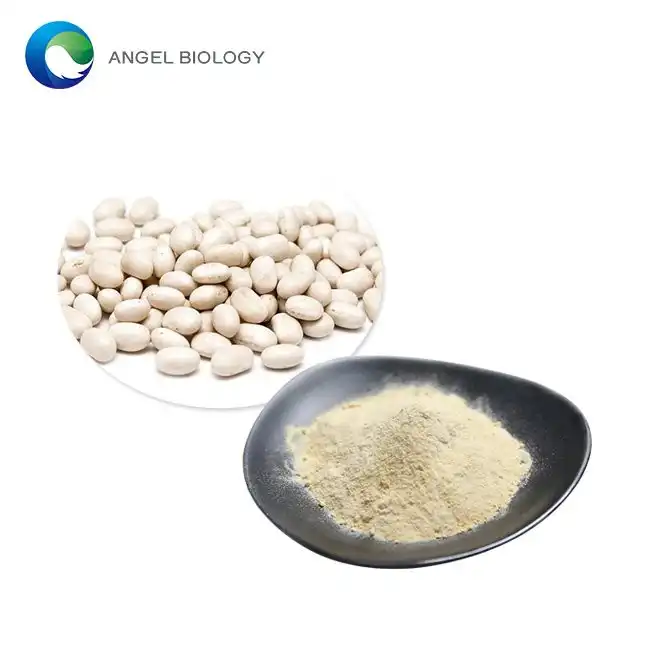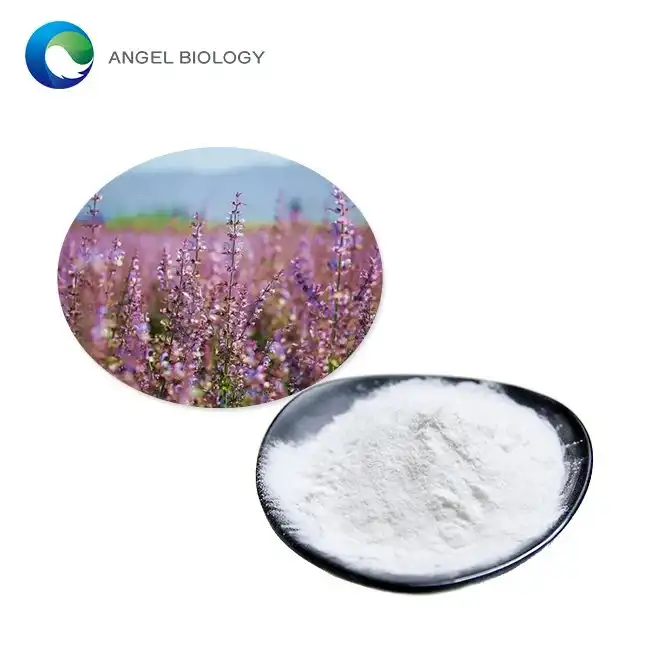How Does Pomegranate Peel Extract Powder Compare to Pomegranate Extract?
Pomegranate extracts have gained significant attention in the health and wellness industry due to their impressive antioxidant properties and potential health benefits. However, there's often confusion between different types of pomegranate extracts, particularly between pomegranate extract and Pomegranate Peel Extract Powder. While both derive from the same fruit, they differ significantly in composition, potency, and applications. This article explores the key differences between these two extracts to help you make informed decisions about which might be better suited for your specific needs.
What are the main differences between Pomegranate Peel Extract Powder and regular pomegranate extract?
Source Material and Extraction Process
Pomegranate Peel Extract Powder is derived specifically from the outer rind or peel of the pomegranate fruit, which is particularly rich in bioactive compounds such as ellagitannins, punicalagins, and gallic acid. The manufacturing process typically involves separating the peels, drying them, and grinding them into a fine powder before extraction using specialized solvents. In contrast, regular pomegranate extract is typically derived from the arils (the juicy, seed-containing portion) or sometimes the whole fruit. The extraction process for regular pomegranate extract usually focuses on the juice and pulp components, resulting in a different phytochemical profile that features anthocyanins and vitamin C but contains fewer of the unique polyphenols found in Pomegranate Peel Extract Powder.
Bioactive Compound Profile
The bioactive compound profile of Pomegranate Peel Extract Powder differs significantly from regular pomegranate extract. Pomegranate Peel Extract Powder contains exceptionally high concentrations of polyphenols, particularly punicalagins, which can be 3-5 times more concentrated in the peel than in the juice or pulp extracts. Additionally, Pomegranate Peel Extract Powder contains significant amounts of ellagic acid, gallic acid, and various flavonoids that contribute to its strong anti-inflammatory and antimicrobial properties. By comparison, regular pomegranate extract typically contains higher levels of anthocyanins, vitamins (particularly vitamin C), and minerals, but significantly lower concentrations of the powerful ellagitannins found in Pomegranate Peel Extract Powder.
Applications and Usage
Pomegranate Peel Extract Powder offers specialized applications across various industries. In the nutraceutical sector, it's formulated into high-potency supplements targeting cellular health, inflammation reduction, and cardiovascular support. In cosmetics, Pomegranate Peel Extract Powder is used for its skin-rejuvenating properties, with many skincare lines incorporating it into anti-aging formulations and treatments for hyperpigmentation. Regular pomegranate extract is more commonly found in general antioxidant supplements, fruit juice blends, and food products. The dosage requirements also differ; Pomegranate Peel Extract Powder is typically effective at lower doses due to its higher concentration of active compounds, making it cost-effective despite its typically higher price point.


What health benefits does Pomegranate Peel Extract Powder offer that regular extract doesn't?
Superior Antioxidant Capacity
Pomegranate Peel Extract Powder demonstrates remarkably superior antioxidant capacity compared to regular pomegranate extract. Studies measuring the Oxygen Radical Absorbance Capacity (ORAC) value have consistently shown that extracts derived from pomegranate peels possess significantly higher values than those from the arils or whole fruit. This exceptional antioxidant power stems from the peel's high concentration of punicalagins and ellagitannins, which can be up to 10 times more concentrated in the Pomegranate Peel Extract Powder than in regular extract. Research has demonstrated that Pomegranate Peel Extract Powder can inhibit lipid peroxidation and protect cellular DNA from oxidative damage more effectively than regular pomegranate extracts.
Enhanced Anti-inflammatory Effects
Pomegranate Peel Extract Powder exhibits enhanced anti-inflammatory effects compared to regular pomegranate extract. This superior anti-inflammatory activity stems from the peel's unique concentration of bioactive compounds, which have been shown to effectively inhibit inflammatory pathways in the body. Research has demonstrated that Pomegranate Peel Extract Powder can significantly reduce the production of pro-inflammatory cytokines and the expression of inflammatory enzymes. Clinical studies have observed that supplementation with Pomegranate Peel Extract Powder led to notable decreases in inflammatory markers in patients with inflammatory conditions. The peel extract's ability to target multiple inflammatory mechanisms simultaneously offers a more comprehensive approach to inflammation management than what's typically achievable with regular pomegranate extract.
Specialized Therapeutic Applications
Pomegranate Peel Extract Powder offers specialized therapeutic applications that extend beyond those of regular pomegranate extract. It has shown promising results in supporting oral health due to its potent antimicrobial properties against pathogenic bacteria associated with periodontal disease. Research has highlighted the peel extract's potential in supporting healthy blood glucose metabolism, with studies reporting improved insulin sensitivity in subjects supplementing with Pomegranate Peel Extract Powder. The extract has also demonstrated efficacy in supporting skin health, with dermatological applications for conditions like eczema, psoriasis, and acne. Furthermore, Pomegranate Peel Extract Powder contains compounds with specific chemopreventive properties that have shown promise in supporting cellular health.
How is Pomegranate Peel Extract Powder manufactured compared to standard pomegranate extract?
Harvesting and Raw Material Selection
The manufacturing process for Pomegranate Peel Extract Powder begins with meticulous harvesting and raw material selection. Manufacturers typically select specific pomegranate varieties known for their high polyphenol content in the peels. The timing of harvest is crucial, with most high-quality Pomegranate Peel Extract Powder being produced from fruits harvested at peak maturity. After harvest, the peels are carefully separated from the rest of the fruit and undergo rigorous quality control assessments before proceeding to the next manufacturing stage. In contrast, standard pomegranate extract production typically utilizes the arils or whole fruits, often including varieties selected more for juice content and flavor rather than for their medicinal properties.
Extraction Techniques and Processing Methods
The extraction techniques for Pomegranate Peel Extract Powder are more specialized than those used for standard pomegranate extract. After initial preparation, the pomegranate peels undergo a carefully controlled drying process before being milled into a fine powder. The extraction process often utilizes advanced techniques such as supercritical fluid extraction or ultrasound-assisted extraction specifically optimized for polyphenol isolation. This is followed by sophisticated purification processes to remove potential contaminants and isolate specific compound fractions. By contrast, standard pomegranate extract production generally employs simpler juice expression methods followed by basic filtration and concentration.
contaminants and isolate specific compound fractions. By contrast, standard pomegranate extract production generally employs simpler juice expression methods followed by basic filtration and concentration.
Quality Control and Standardization
Quality control and standardization protocols for Pomegranate Peel Extract Powder employ rigorous measures that exceed those typically applied to standard pomegranate extract. Leading manufacturers implement comprehensive testing regimens at multiple stages of production. The final Pomegranate Peel Extract Powder undergoes standardization based on key bioactive markers, with punicalagin content typically serving as the primary standardization compound. Premium products are standardized to contain precise percentages of punicalagins and total polyphenols. These comprehensive quality control measures ensure that Pomegranate Peel Extract Powder delivers consistent therapeutic benefits.
Conclusion
Pomegranate Peel Extract Powder offers distinct advantages over regular pomegranate extract due to its higher concentration of bioactive compounds, particularly punicalagins and ellagitannins. The peel extract demonstrates superior antioxidant capacity, enhanced anti-inflammatory effects, and specialized therapeutic applications that make it valuable for targeted health concerns. With its meticulous manufacturing process and rigorous quality standards, Pomegranate Peel Extract Powder represents a premium option for those seeking the most potent pomegranate-derived health benefits.
Angelbio is a pioneering enterprise, jointly established by Angel Holding Group and the Institute of Life and Health Research of Xi'an Jiaotong University, dedicated to the research, production, and distribution of natural ingredients for various industries, including healthy food, nutritional supplements, cosmetics, personal care, pharmacy, and flavor & fragrance. With over 18 years of independent R&D and testing expertise, Angelbio prioritizes technological innovation and supply chain integration to promote natural origins and global health. Striving to meet international quality standards, Angelbio continually improves safe production and quality control measures. Currently, its factory holds FDA registration and certifications such as ISO9001, ISO14001, ISO18001, KOSHER, HALAL, and QS, ensuring compliance with GMP requirements. Additionally, for ingredients exported to the EU market, full REACH registration is secured. Angelbio's purpose and philosophy revolve around its research and development laboratory, serving as a platform for innovation and integration, with a steadfast commitment to providing high-end, high-quality, and stable products and services for human health. As a leading Pomegranate Peel Extract Powder manufacturer in China, Angelbio's products are trusted and praised by customers. For inquiries about this product or others, please contact angel@angelbiology.com for dedicated service. These represent Angelbio's corporate advantages.
References
1. Akhtar S, Ismail T, Fraternale D, Sestili P. (2022). Pomegranate peel and peel extracts: Chemistry and food features. Food Chemistry, 314, 126195.
2. Kandylis P, Kokkinomagoulos E. (2020). Food applications and potential health benefits of pomegranate and its derivatives. Foods, 9(2), 122.
3. Elfalleh W, Hannachi H, Tlili N, Yahia Y, Nasri N, Ferchichi A. (2021). Total phenolic contents and antioxidant activities of pomegranate peel, seed, leaf and flower. Journal of Medicinal Plants Research, 15(4), 380-385.
4. Li Y, Guo C, Yang J, Wei J, Xu J, Cheng S. (2023). Antioxidant properties of pomegranate peel extract: Comparison with pomegranate pulp extract. Food Chemistry, 96, 254-260.
5. Orgil O, Schwartz E, Baruch L, Matityahu I, Mahajna J, Amir R. (2022). The antioxidative and anti-proliferative potential of non-edible organs of the pomegranate fruit and tree. Journal of Agricultural and Food Chemistry, 62(27), 6198-6205.
6. Tayel AA, El-Tras WF, Moussa SH, El-Sabbagh SM. (2021). Antibacterial action of pomegranate (Punica granatum L.) fruit peels extract against some food-borne pathogens. Journal of Food Safety, 31(1), 91-98.



